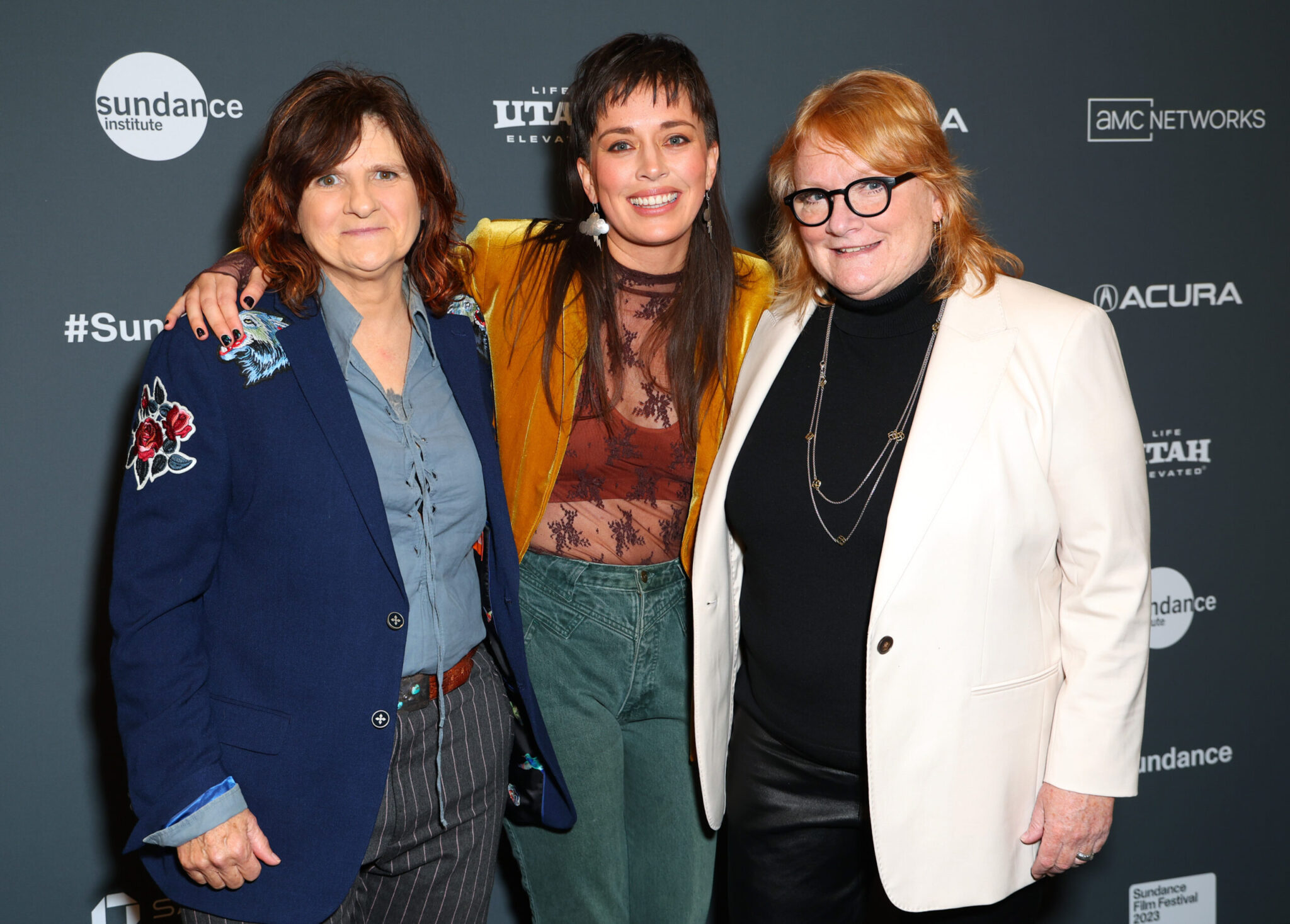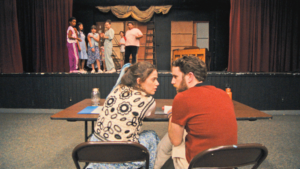By Peter Jones
Amy Ray shuffles through a rack of clothing to find an unusual sleeveless western shirt.
Who would wear such a thing… she wonders out loud.
“I would.”
The lighthearted scene from It’s Only Life After All, in a sense, typifies the determined, almost rugged independence of the Indigo Girls, a folk-pop group that has long lived by its own rules in everything from song craft to sexual expression. The new documentary profiling the enduring duo premiered January 19 at the Ray Theater.
Director Alexandria Bombach mixes archival footage of the Indigo Girls with new and old interviews, creating a comprehensive and honest biography that is told exclusively in the words of Ray and her musical partner, Emily Saliers. Although the frequent juxtaposition of past to present is visually striking, the pair’s harmonies remain so perfect that even edits within the same song — culled from separate performances decades apart — are seamless with nary a compromising key change.
In the Q&A after the screening, Saliers said the musical duo developed an immediate rapport with Bombach, a longtime Indigo Girls fan who wanted to chronicle the group’s story for the first time in a full-length documentary.
“Sometimes trust is a chemical,” Saliers said. “When me met Alexandria, we just felt a calm with her … We knew that she was gifted, and we were really overwhelmed to be asked. It was a shocker.”
That’s not to say the filmmaking process was always easy on the two musicians.
“There are days when you don’t want to put a microphone pack on your butt,” Saliers said. “[But] the word ‘trust’ keeps coming up — and that’s it. Not only trust, we really love the people who worked on this film.”
Bombach said one of the main challenges of making the documentary was figuring out how to edit the film, including a plethora of archival footage the Indigo Girls had collected over the years.
“I wanted it to go on and on and on,” the director said of the two-hour biography. “It was really hard to make it this short. There was so much to cover. … It was painful what I had to leave out.”
Sifting through the archives was half the enjoyment for Ray.
“I got that from my daddy and his parents. I have a family that loves to document — on both sides. Books, diaries, film, and everything. For me, I always wanted to film everything. It’s fun,” she said.
The film takes turns serious and comical as Ray and Saliers wax nostalgic, reflect thoughtfully on their personal demons, and at one point hilariously, yet poignantly, read out loud a decades-old, brutally scathing review from The New York Times — occasionally agreeing with its venom. Indigo Girls would eventually find their place, not in the genre-defining women’s folk scene that birthed them, but in the post-punk alternative world that encouraged their “outlaw” approach.
It’s Only Life After All, whose title is lifted from the group’s hit “Closer to Fine,” has many moments of illumination — the duo’s awakening to a less sanitized environmentalism, their initial differences on the idea of “coming out,” the lesbian pair’s determined lack of romantic attraction for each other, and an utterly charming view on the Indigo Girls as doting mothers.
But perhaps the most arresting revelation in the new documentary is that these two acoustic coffeehouse-born women folk singers from Georgia can truly rock out when they want to.










